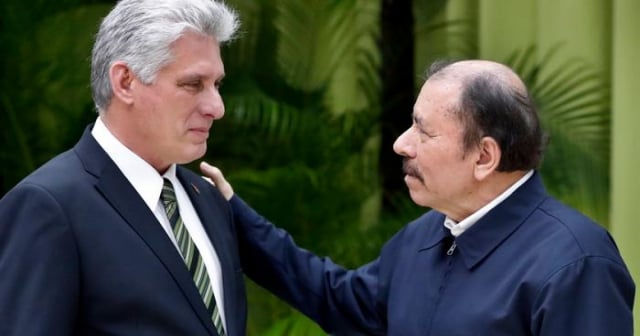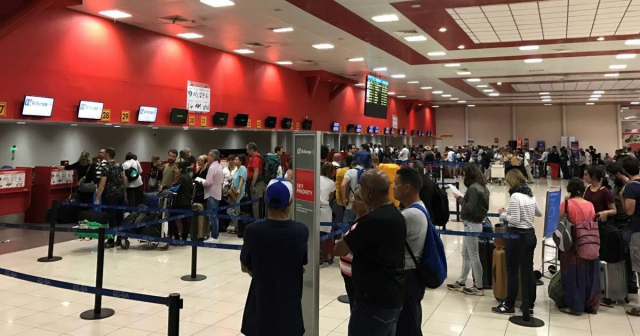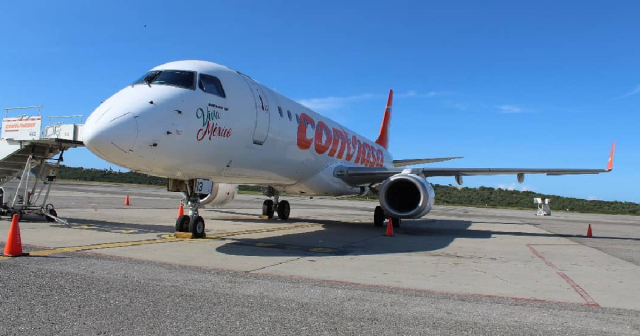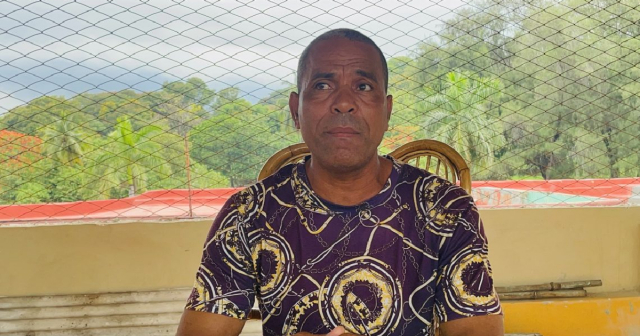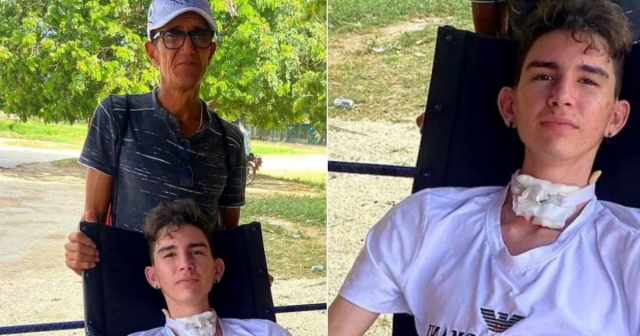The regime of dictator Daniel Ortega denied entry to Nicaragua to the Cuban independent activist and journalist Yoel Acosta Gámez and his wife, Alisanni Lores Furones, when they were about to travel to the Central American country from Uruguay.
This was reported by the non-governmental organization (NGO) Cubalex in a post on its social media, where it informed about the entry ban to Nicaragua imposed by the country's migration authorities, a close ally of the Havana regime.
"The activist informed Cubalex that they bought the tickets three months in advance and had a flight scheduled for today [Saturday, July 20] at 4 a.m. to Nicaragua, departing from Uruguay with a stop in Panama," the organization specified.
The opposition figure, a victim of pressures from State Security in Cuba to leave the Island, received an email hours before boarding the flight, in which Nicaraguan authorities informed him that neither he nor his wife were authorized to travel to that country.
"According to Acosta Gámez, he was able to confirm through sources from Migration that his name appears on a list of people regulated by the governments of Cuba and Nicaragua, and for that reason, his entry is denied," Cubalex stated.
The couple, who sold all their belongings to embark on the journey to the United States, lost the money for their tickets, and the airline Copa Airlines denied any responsibility for the refund, arguing that the denial was a direct decision of the Nicaraguan regime.
In a recording sent to the aforementioned NGO, the independent journalist warned about the complicity of Ortega's regime with the Cuban dictatorship by denying entry to activists, independent journalists, and dissidents as retaliation for their work in defending human rights.
He also reported that his life and that of his wife are at risk due to the threats received after their forced departure from Cuba, including the prohibition of returning to the country under the warning of being imprisoned.
In February, Acosta Gámez requested help on social media to reach the United States. Exiled in Uruguay since last year due to the forced exile imposed by the Cuban government, the independent journalist, originally from Baracoa, Guantánamo, was one of the first sanctioned under Decree-Law 35.
Three similar cases in the last thirty days.
Evidence of complicity between both allied regimes is mounting. The case of Acosta Gámez is the third to be made public since mid-June, when two other Cuban activists were denied entry to Nicaragua.
On June 14, the Cuban opposition figure Bárbaro de Céspedes reported that State Security prevented him from leaving the country for Nicaragua and that there was complicity between the governments of both countries to repress and make life difficult for Cuban activists for freedom and human rights.
"The State Security has tried to make my life impossible in Cuba, for my family and me. I made the hardest decision of my life, to emigrate from this country that I love and defend. It is not out of fear of death, I no longer have a life, but to avoid causing a nuisance to my family," said the opposition leader.
However, after having paid for his ticket for the afternoon of June 14, an expensive flight with several layovers, he was not allowed to board the plane. "While on the bus heading to the airport, I received a message stating that the government of Nicaragua denied my entry to that country," he recounted.
Bárbaro de Céspedes was arrested for protesting on July 11, 2021, and sentenced to two years in prison on charges of assault, disobedience, and contempt. He was released in February 2024, but State Security does not allow him to leave Cuba.
Days later, the Ortega regime also denied entry to Nicaragua to the Cuban opponent Ramón Fuentes Lemes, who was sent back to the island without explanations from Bogotá, the city where he was waiting to board a flight to Managua.
Fuentes Lemes, who sold his home to purchase the tickets, told Cubanet that an employee of the airline Avianca informed him that Nicaraguan authorities denied his entry.
Hours later, the resident of the special municipality Isla de la Juventud was deported to Cuba, where he said he fears for his existence. "Cubans have no rights. I don't know what could happen to my life. My life is in danger and I have nowhere to complain. The communists are the owners of this country," he stated.
Fuentes Lemes aimed to cross several countries to reach the United States, through the so-called "route of the volcanoes," a path chosen by thousands of his compatriots since the end of 2021, after the announcement of the visa-free entry to Nicaragua.
"Nobody is going to make me change my mind, I will continue to be free in spirit. Long live human rights! Homeland and Long live and Homeland and Freedom!" said the opponent who experienced his third failed attempt to permanently leave the land where he was born.
Managua and Havana: Allies in the use of the "migratory weapon" as a tool of pressure on the United States
Nicaragua has become a strategic point for irregular migration to the United States, facilitating the passage of thousands of people seeking to evade the dangerous journey through the Darién Gap.
Under the administration of dictator Daniel Ortega, the country has exempted several nationalities from visa requirements, allowing migrants from different parts of the world to arrive by plane in Managua and continue their journey north. This has become a lucrative business for the Sandinista regime, noted a BBC article titled "Nicaragua's Million-Dollar Business as a Gateway for Irregular Migrants to the U.S."
This policy has encouraged changes in several countries in the region such as Cuba. After the anti-government outbreak on July 11, 2021, Ortega gave his support to the Havana regime, an old ally, and eliminated the visa requirement for Cubans in order to relieve pressure from the internal crisis in the country.
Since then, the island has experienced the worst migratory exodus in its history, with more than half a million people having left the country.
The BBC article noted that in the past two years, more than 5 million migrants have crossed the southern border of the United States irregularly, many of them using Nicaragua as a gateway; and with this, the Nicaraguan government earns revenue through airport taxes, visa fees, and other services.
In 2023, approximately 1,200 private flights were recorded transporting migrants to the southern border of the United States from distant countries like India and Kazakhstan, but also from neighboring nations like Cuba and Haiti, the text detailed.
According to the Nicaraguan media outlet Confidencial, between January and October 2023, the government would have collected around $65.9 million in fees or fines from passing migrants, while in the first three months of 2024, the figure would reach $8.4 million.
However, it is believed that the benefits for the Nicaraguan government are much greater, as a one-way flight ticket from Cuba to Nicaragua in the last two years was around $3,000, and each migrant usually pays between $10,000 and $15,000 for the entire route from the place of origin to the border between Mexico and the U.S., the report states.
Part of these amounts paid to intermediaries or agencies by the hundreds of thousands of users of the Managua route would have ended up in the hands of Ortega's government and his associates, the BBC indicated.
Analysts indicate that the Ortega regime uses this situation not only to generate economic income but also as a political tool to pressure the United States.
What do you think?
COMMENTFiled under:

